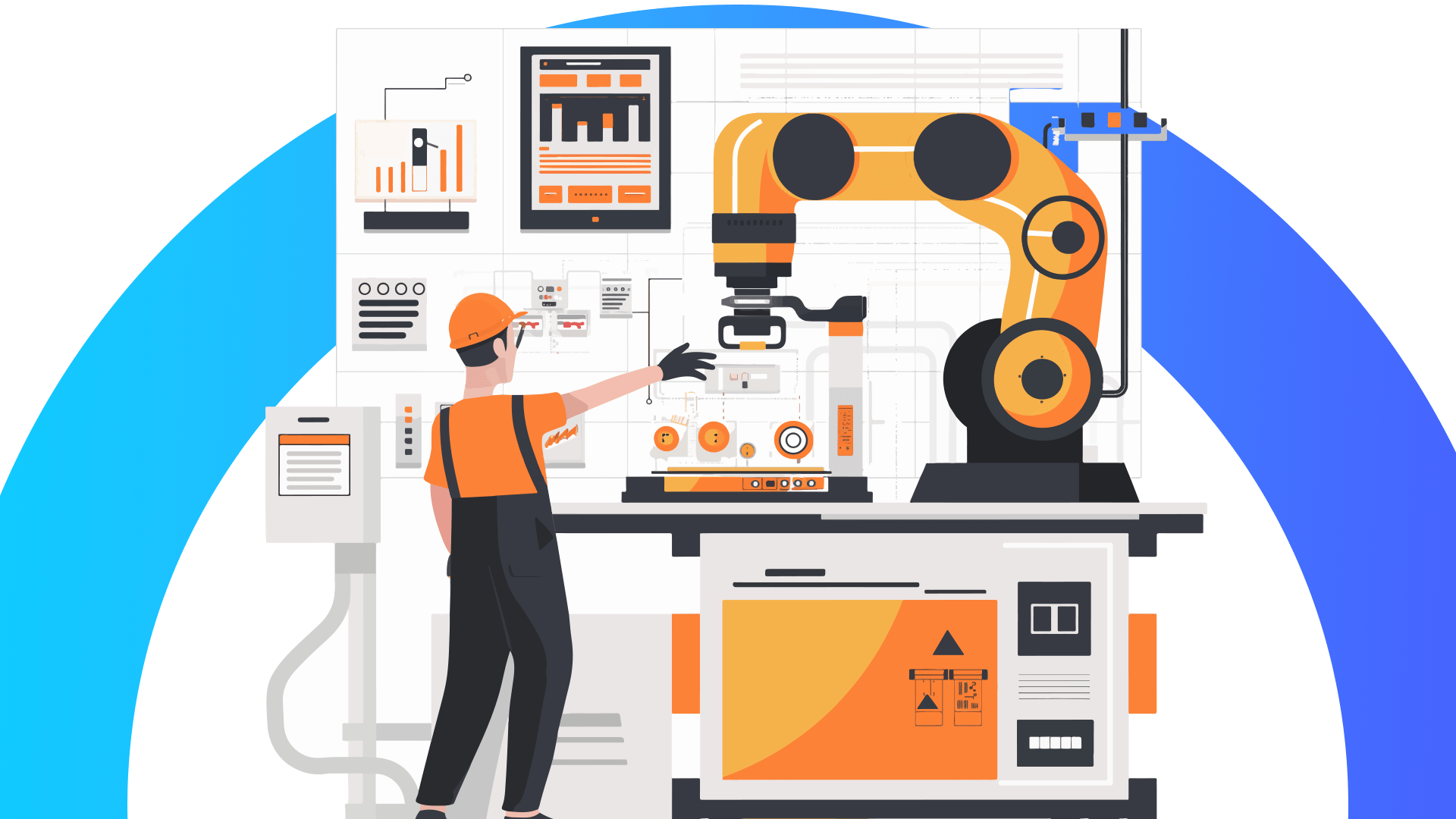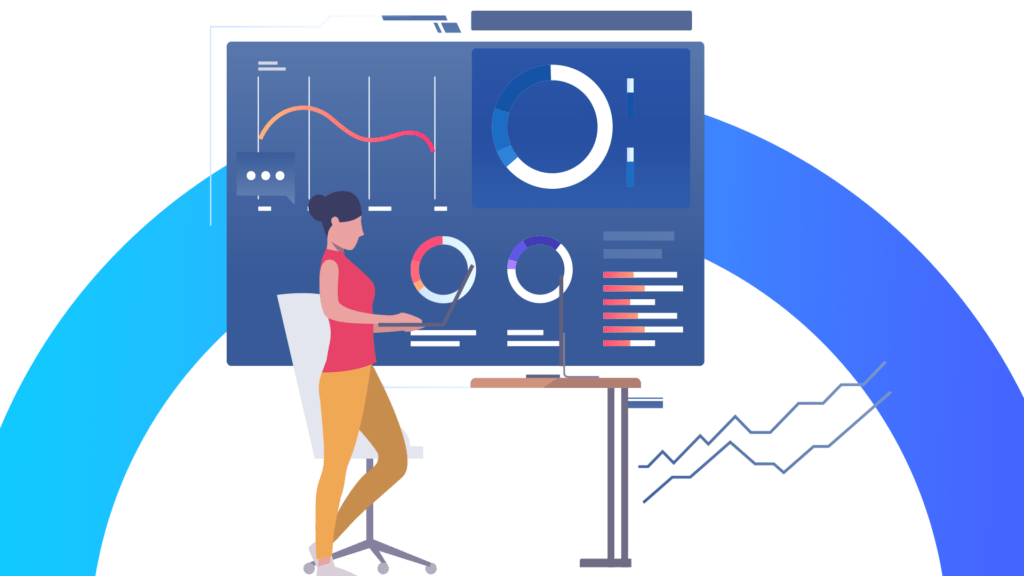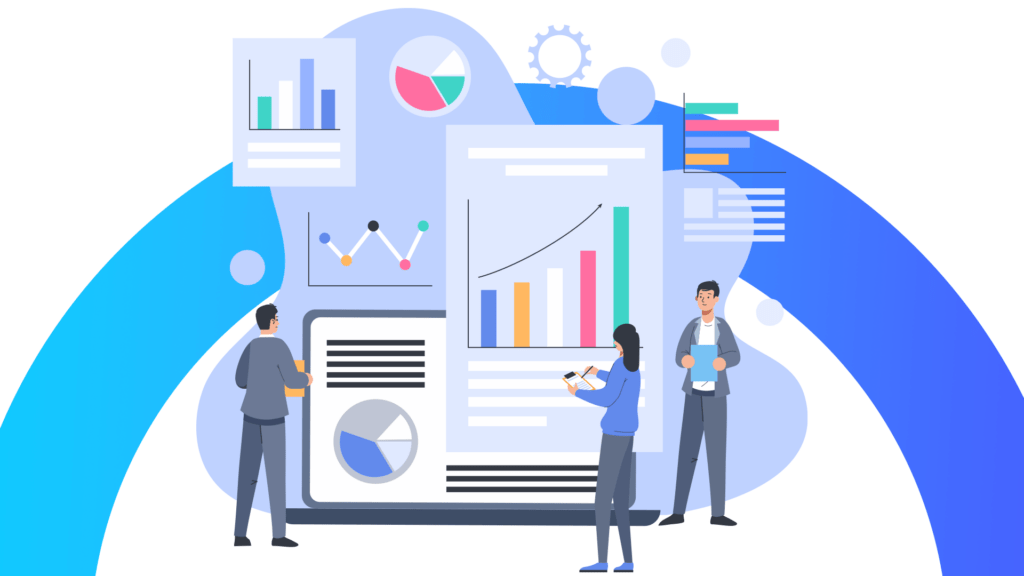The manufacturing industry has always been driven by efficiency, quality, and productivity. However, today’s manufacturers face even more challenges. These range from unexpected machine failures, labor shortages, and customer customization requests to the increasing complexity of production processes that traditional methods must catch up with.
Introduction
Challenges alleviated by industrial machine learning
Industrial machine learning (ML) is revolutionizing this sector by offering solutions to longstanding operational bottlenecks. But what exactly are these challenges, and how is machine learning helping overcome them?
Issues with equipment maintenance
Equipment downtime stands as one of the most important challenges to manufacturing. Previously, maintenance schedules were reliant on periodic checks. It was regardless of whether a machine actually needed servicing or not. Such a maintenance approach proves ineffective and expensive, often leading to unexpected breakdowns. With sufficient data, it is easier to predict machine failure, and reactive maintenance can seriously disrupt production timelines.
Visual inspection inefficiencies
Visual inspection is an integral component of quality control for manufacturing. However, human inspectors or basic optical camera systems can miss defects. This occurs due to variables in lighting, product shape, and environmental conditions, making visual inspection less effective. The result is false positives or overlooked issues. These compromise both the quality of manufacturing processes and create wasteful production lines.
Unreliable demand forecasting
Prediction methods often need to account for the complexity and changing nature of markets today. Inaccurate projections often result in either too much inventory or too little.
Unsafe working environments
Factories are found to have high-risk environments in which safety precautions are essential. Yet, the occurrence of accidents is foreseeable, as employees and machines share the workspace. Ensuring machines operate safely around humans is a never-ending challenge.
Limited design flexibility
Although humans excel at creativity, they can only handle a limited set of variables at a time. With increasing demands for highly customized items from consumers worldwide, manufacturers need to produce customized designs faster than ever.
How industrial machine learning addresses these challenges
Through industrial machine learning, manufacturers are enabled with practical solutions to tackling manufacturing inefficiencies. These result in increased overall productivity, quality, and safety.
Harnessing predictive maintenance
One of the most noteworthy applications of industrial machine learning is predictive maintenance. Instead of performing unneeded checks on machines, predictive maintenance uses sensor data analysis to anticipate when they may fail. Maintenance would only be conducted, when necessary, thus cutting downtime and prolonging equipment lifespan.
Companies employing industrial machine learning can detect minor issues before they become major repairs, necessitating urgent service calls and production stoppage. A great solution aiding in operational efficiency is OEEfficienci, that streamlines processes and optimizes production schedules through use of ML techniques such as predictive maintenance. By harnessing industrial machine learning, OEEfficienci allows manufacturers to make informed decision making.
Enhancing visual inspection
Industrial machine learning-based visual inspection systems have proven their accuracy by learning from large datasets of defective and non-defective items. Conventional inspection systems may be affected by minor lighting or product placement variations.
However, machine learning-based inspection systems adapt quickly to detect subtle defects with greater precision than ever before. This leads to both reduced waste production and higher product quality levels.
Accurate demand forecasting
Machine learning algorithms have proven their worth as reliable demand forecasters by quickly processing massive volumes of data in real time, making industrial ML algorithms ideal for demand prediction.
By analyzing historical sales figures, market conditions, weather patterns, or social trends, ML provides more accurate predictions that help manufacturers manage inventory more efficiently while decreasing both excess stock and risks of stockouts.
Increased workplace safety
Robots and machines equipped with computer vision systems powered by machine learning can recognize objects from humans, enabling them to make intelligent decisions and navigate safely around human workers while reducing accidents. Furthermore, machine learning-powered computer vision can identify hazardous conditions before they lead to incidents – further increasing workplace safety.
Evolved generative design
Although creativity remains the domain of humans, AI can aid by offering generative design options that go beyond our abilities. By analyzing set constraints such as material strength or manufacturing costs, ML can generate hundreds or even thousands of potential designs. This speeds up the design process and offers innovative solutions that might not have crossed our minds otherwise.
Real-life applications of industrial machine learning
Manufacturers from diverse industries have used industrial machine learning successfully to address real-world problems, with several notable examples emerging across sectors:
Siemens anomaly detection
Siemens has integrated machine learning (ML) into their anomaly detection processes with the Anomaly Assistant app. They use machine data to spot potential inefficiencies or potential failures before they arise. This saves both time and money by providing operators with early warning of issues before further escalation. The model refinement ensures operators can address problems before they become more serious – saving both time and money.
Generative design at General Motors
General Motors collaborated with Autodesk to use Generative Design to produce a new seat bracket using Generative ML system. They received over 150 unique design solutions that were 40% lighter and 20% stronger than their predecessor. Generative ML enabled General Motors to uncover innovations that were not possible using traditional design methods alone.
Rolls-Royce intelligent engine
Rolls-Royce has taken machine learning one step further with their Intelligent Engine technology, enabling jet engines to talk directly, and sharing operational data to learn in real-time to optimize performance for reduced fuel consumption and extended engine lifespan, leading to significant cost savings for airlines.
Schneider Electric's IoT integration
Schneider Electric utilizes machine learning technology to monitor oil pump systems at their plants. By analyzing data from IoT sensors, they can anticipate failures and adjust settings remotely – improving efficiency while decreasing costly unplanned repairs.
Conclusion
Machine learning has proven invaluable for manufacturers navigating maintenance inefficiencies, design constraints, and workplace safety concerns. Analyzing large data sets in real-time enables manufacturers to predict potential issues before they arise. This optimizes processes more effectively, anticipates problems quickly, and increases overall efficiency.
As more companies adopt ML technologies quickly, those who hesitate may need to catch up. The future of manufacturing lies within data, and industrial machine learning is the key to unlocking higher productivity and innovation levels.
To learn more about how your manufacturing enterprise can overcome operational challenges through industrial machine learning, talk to our experts.




